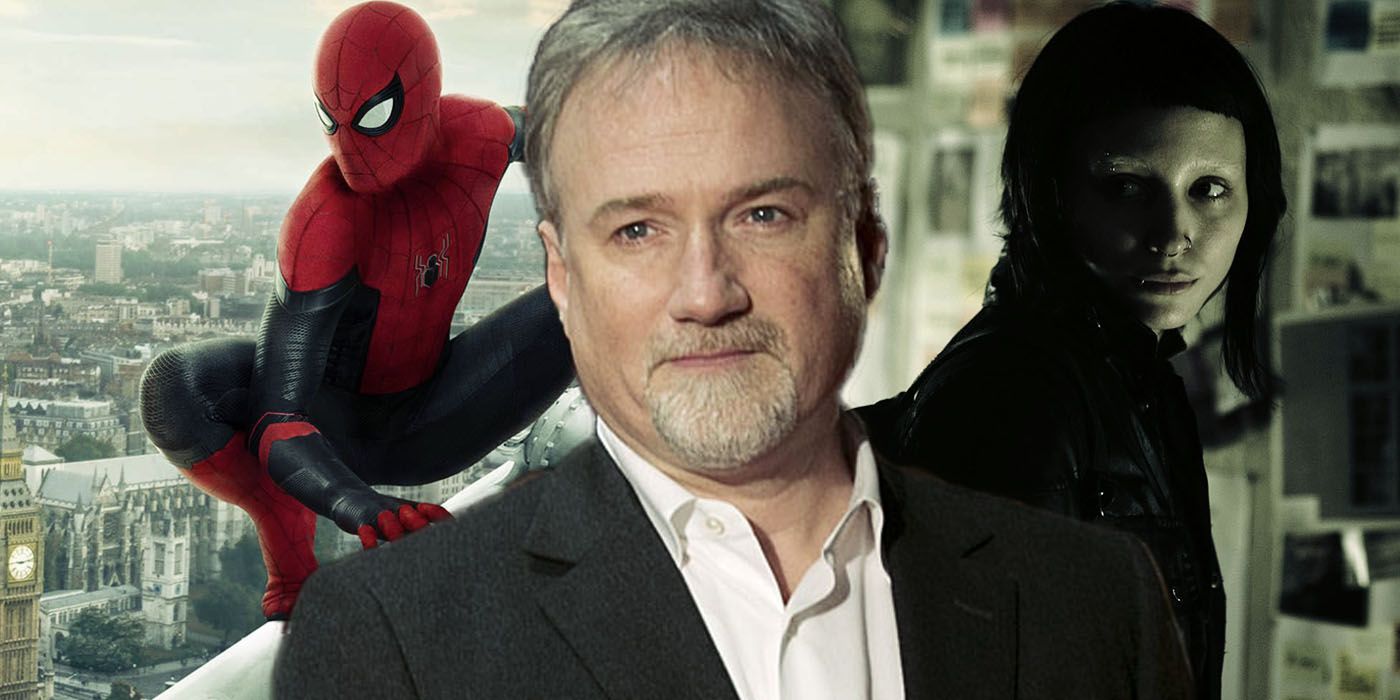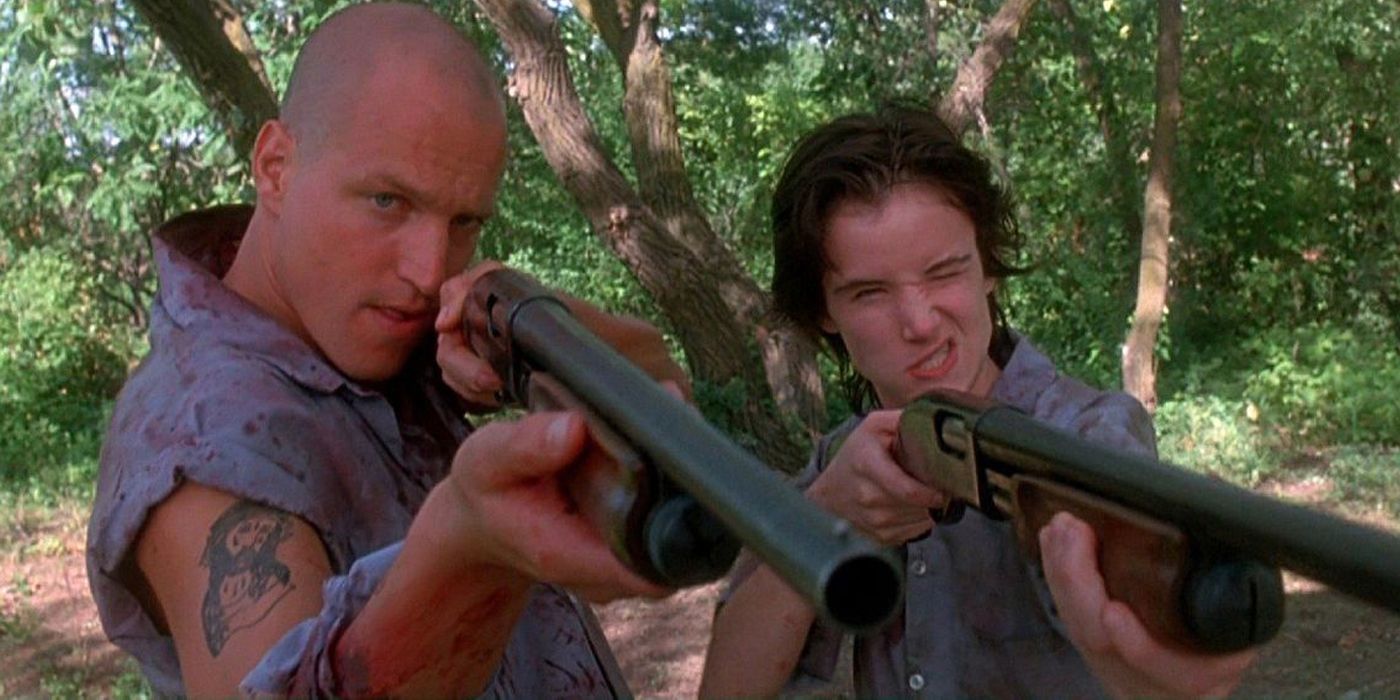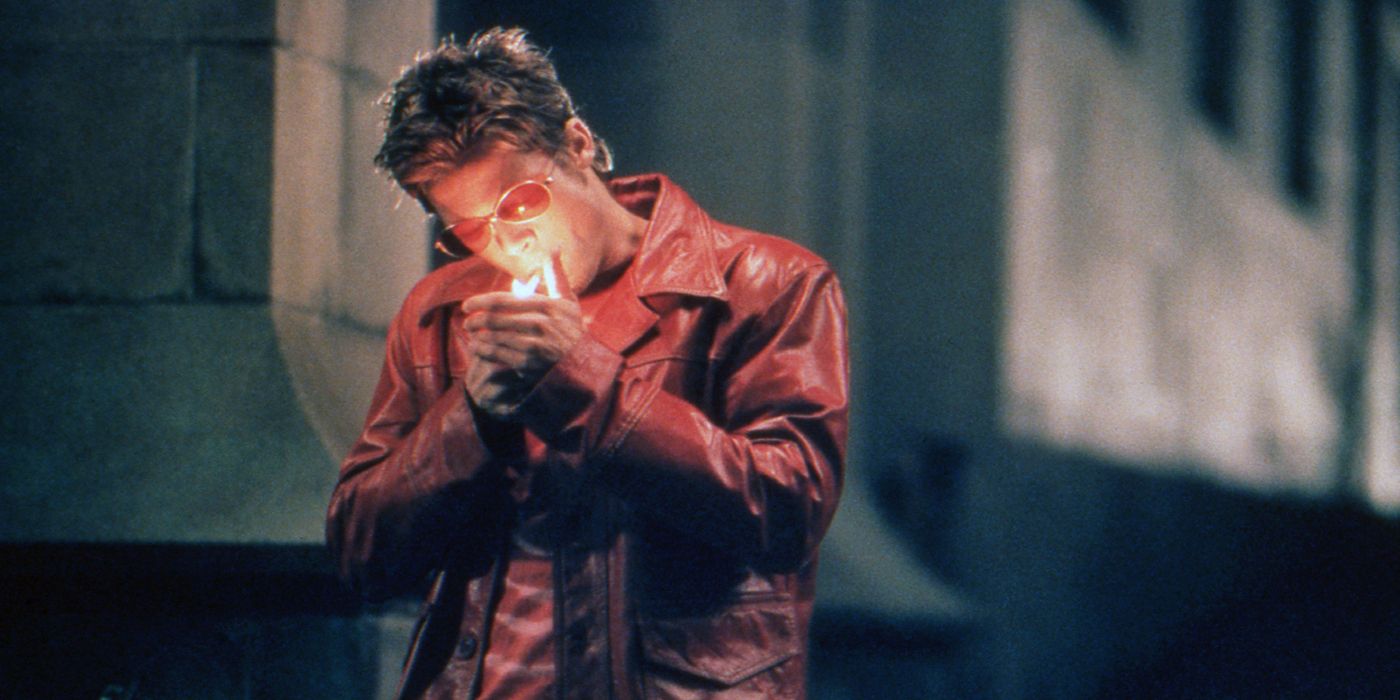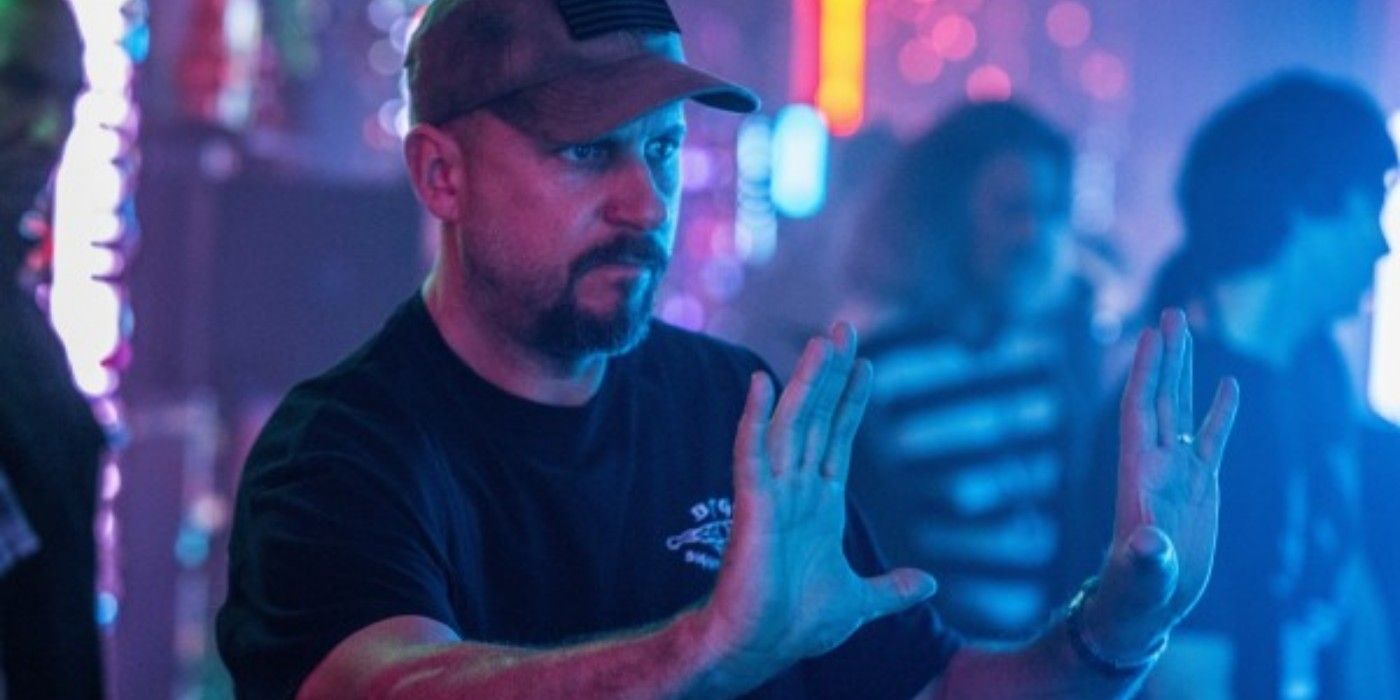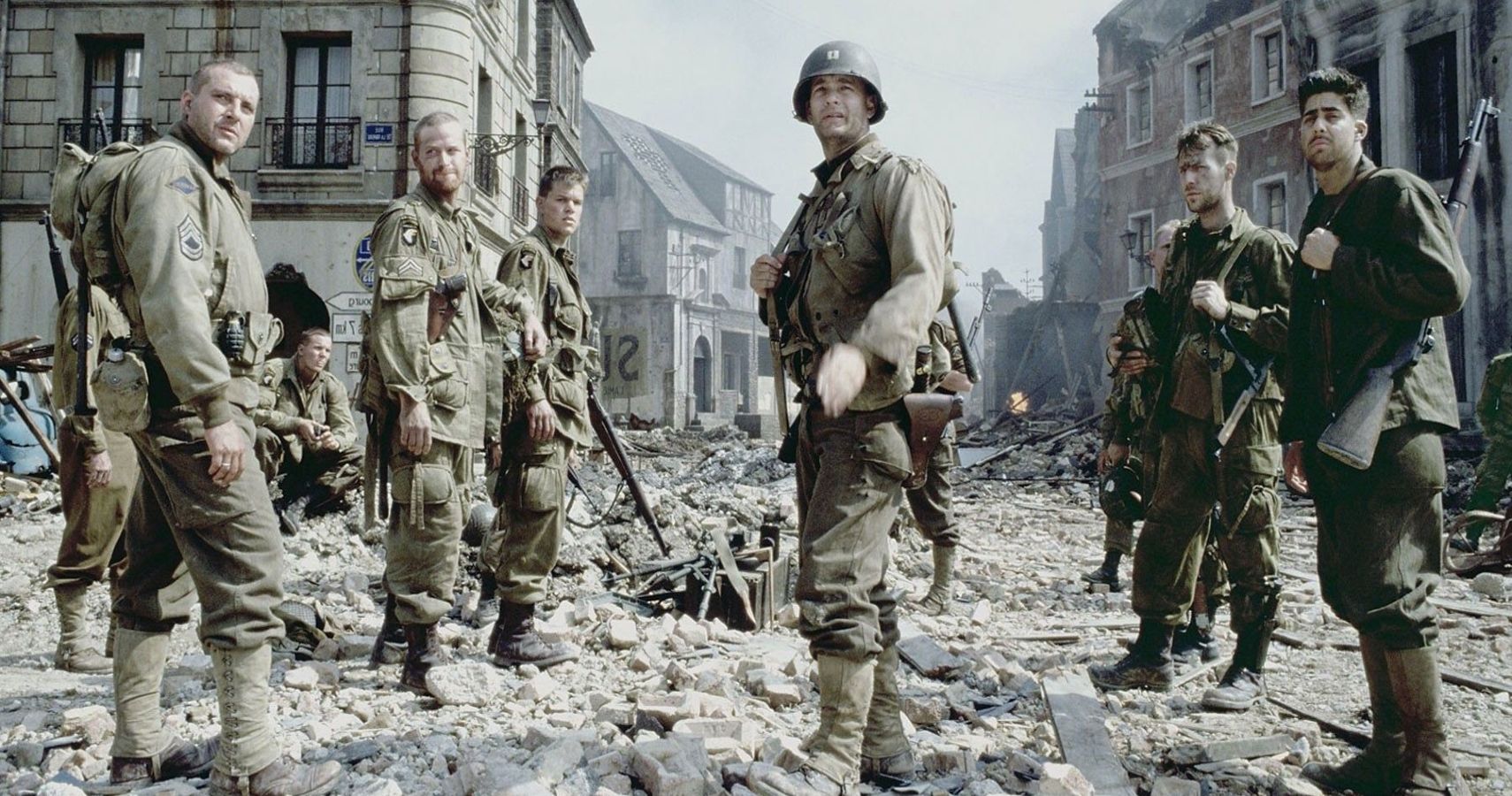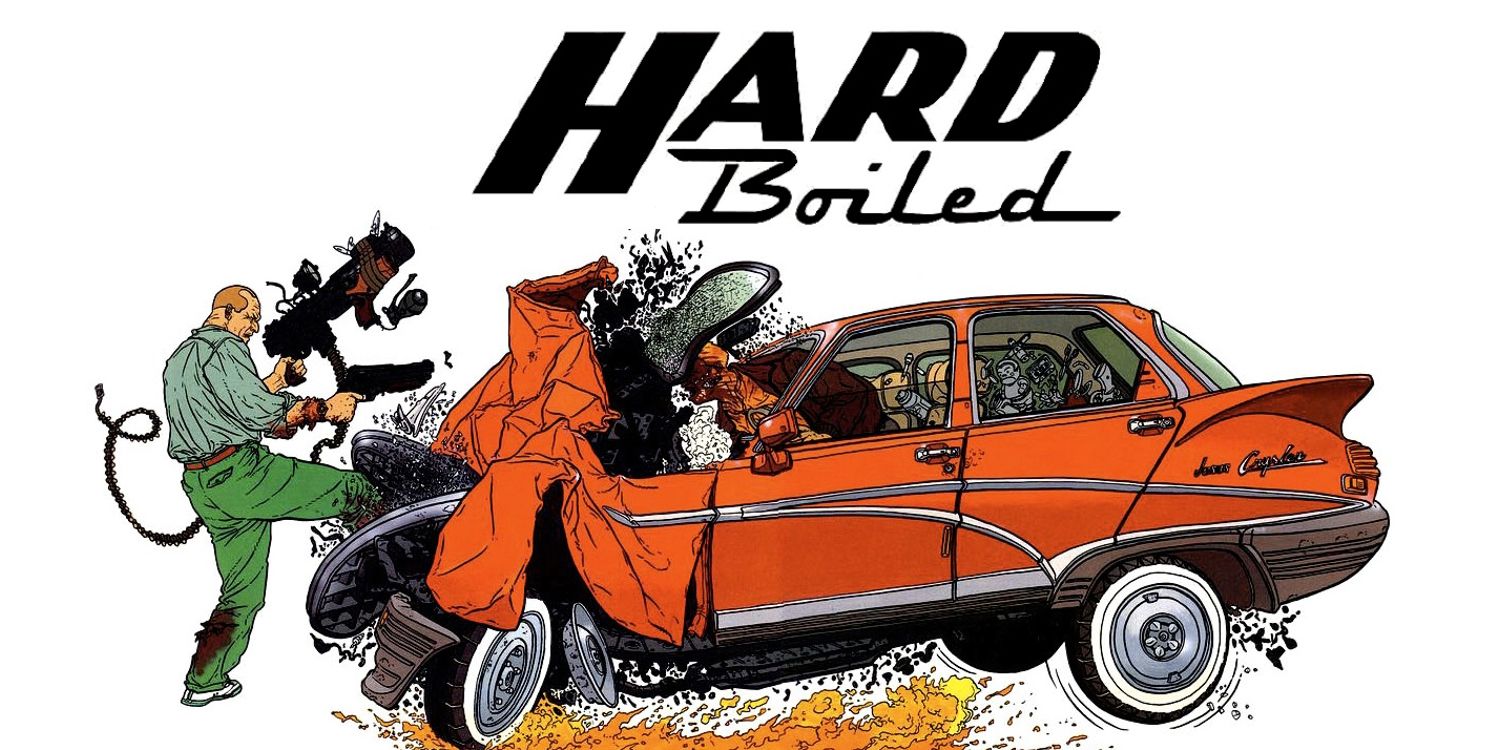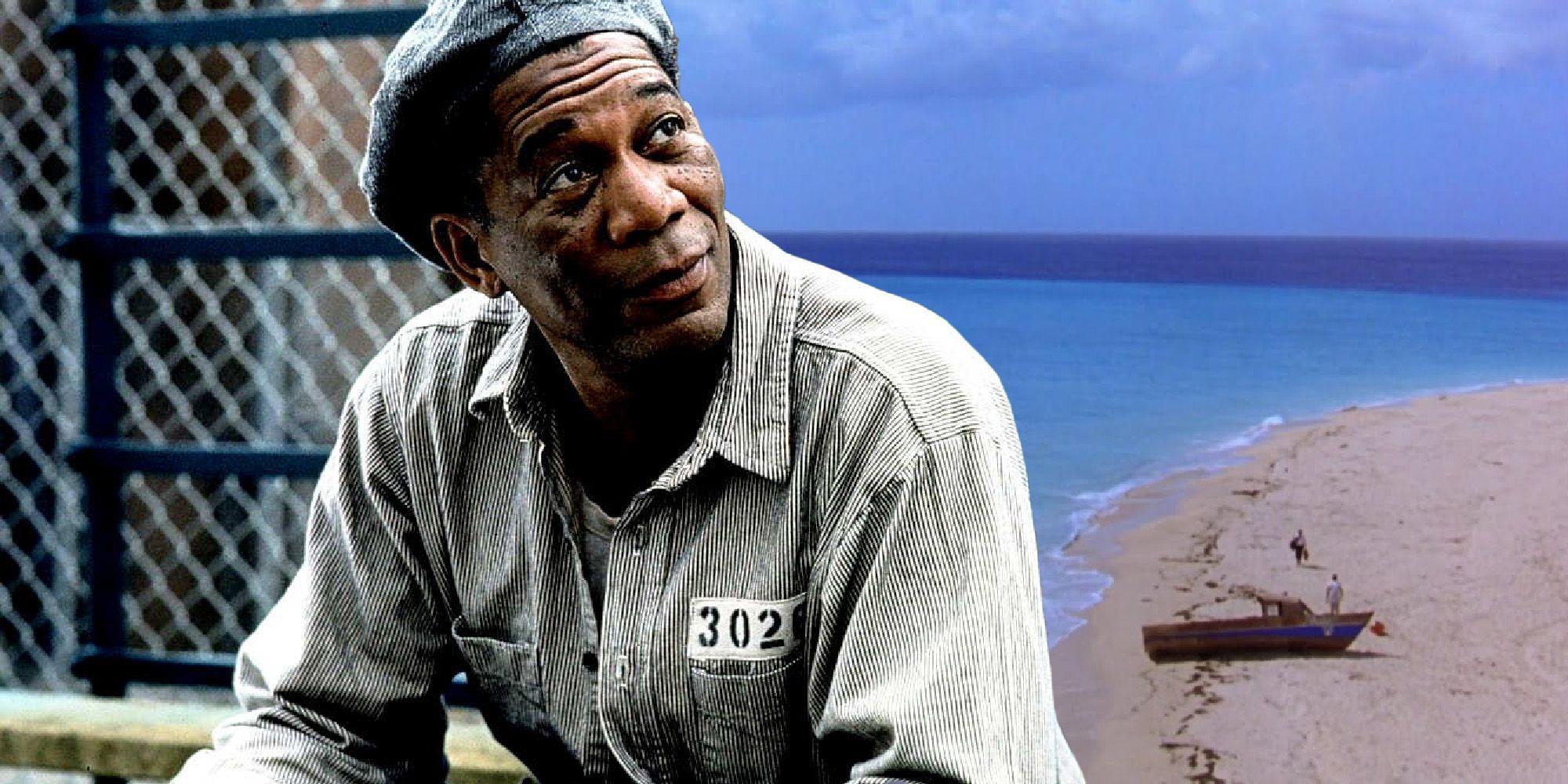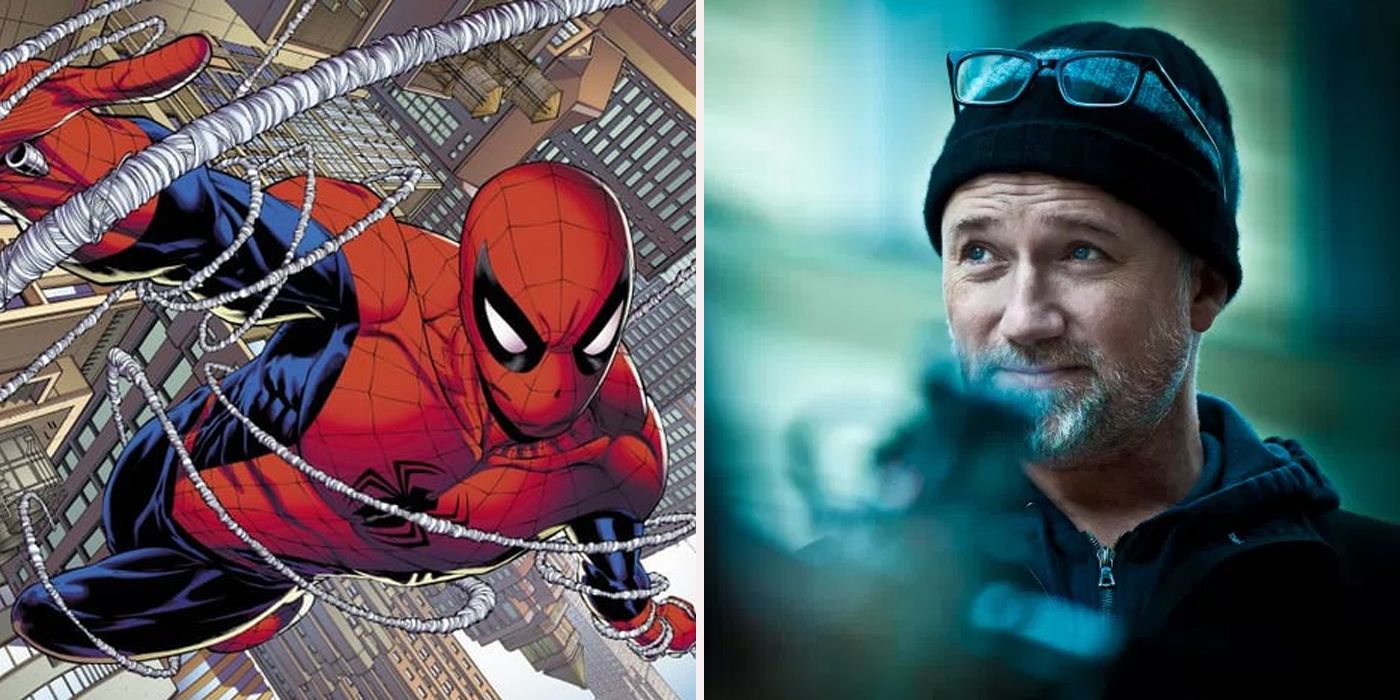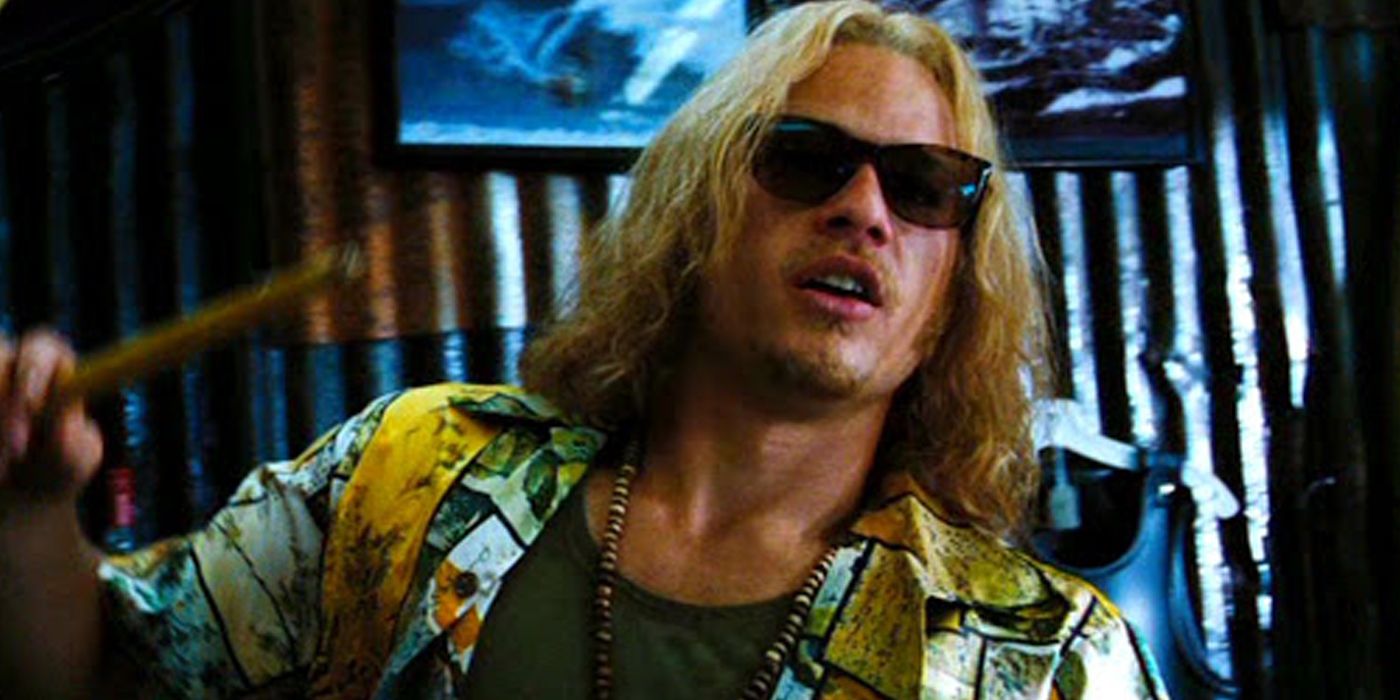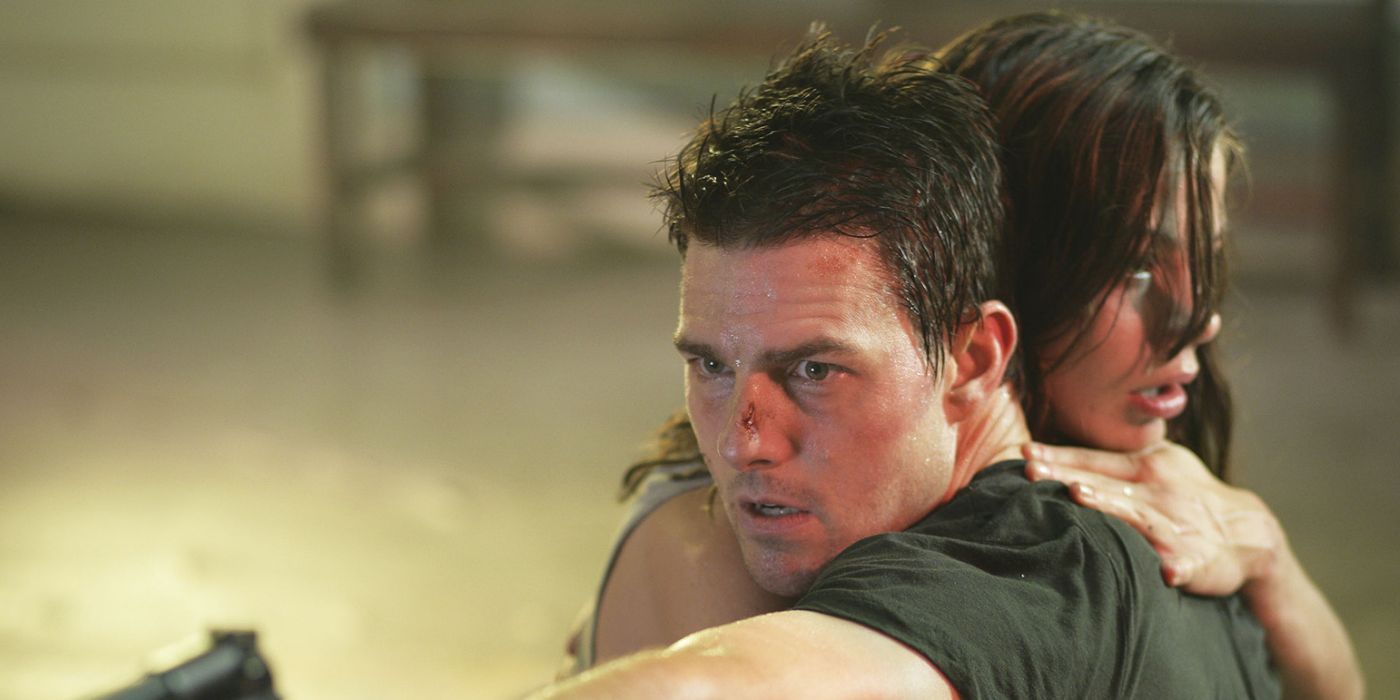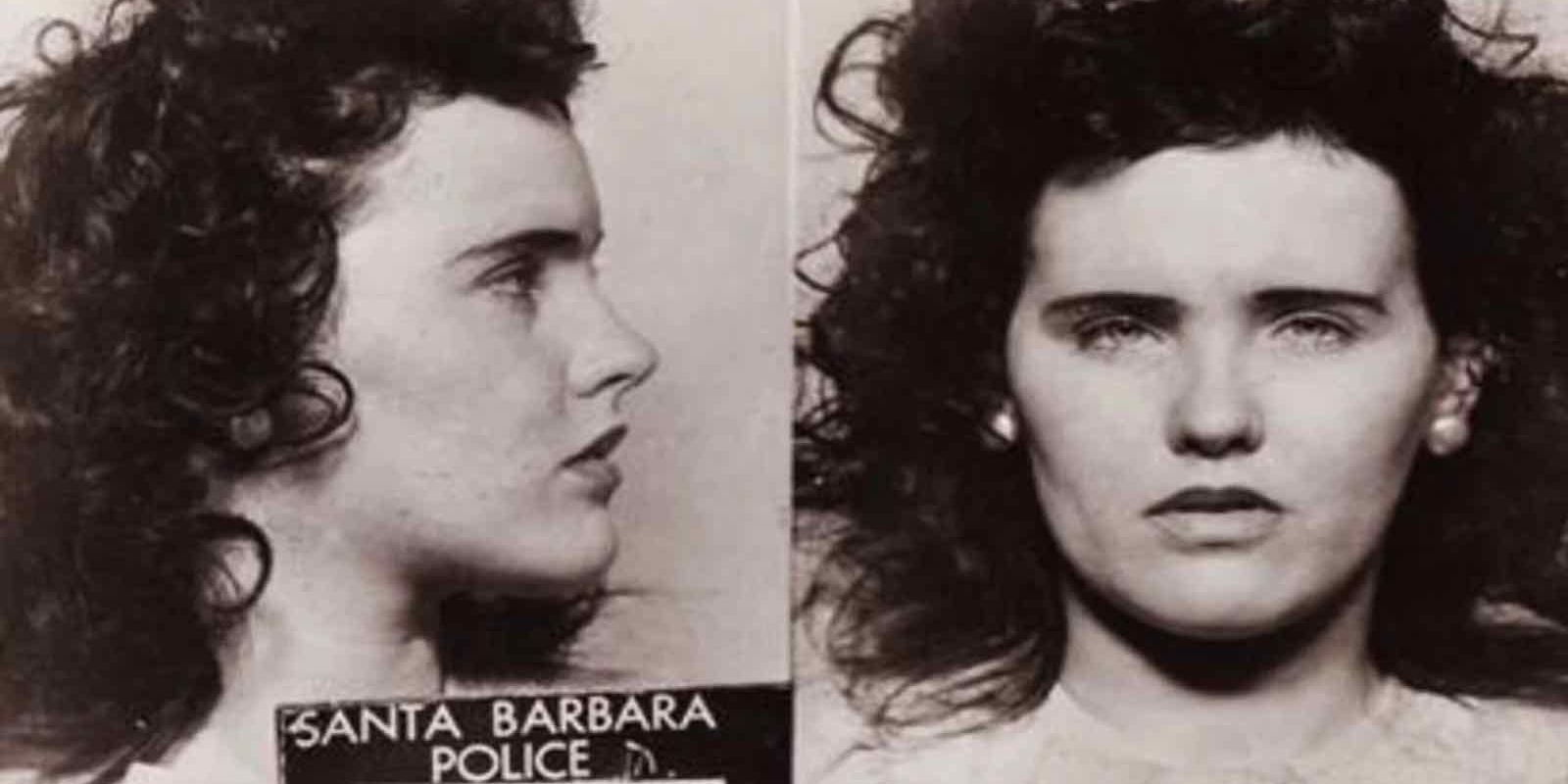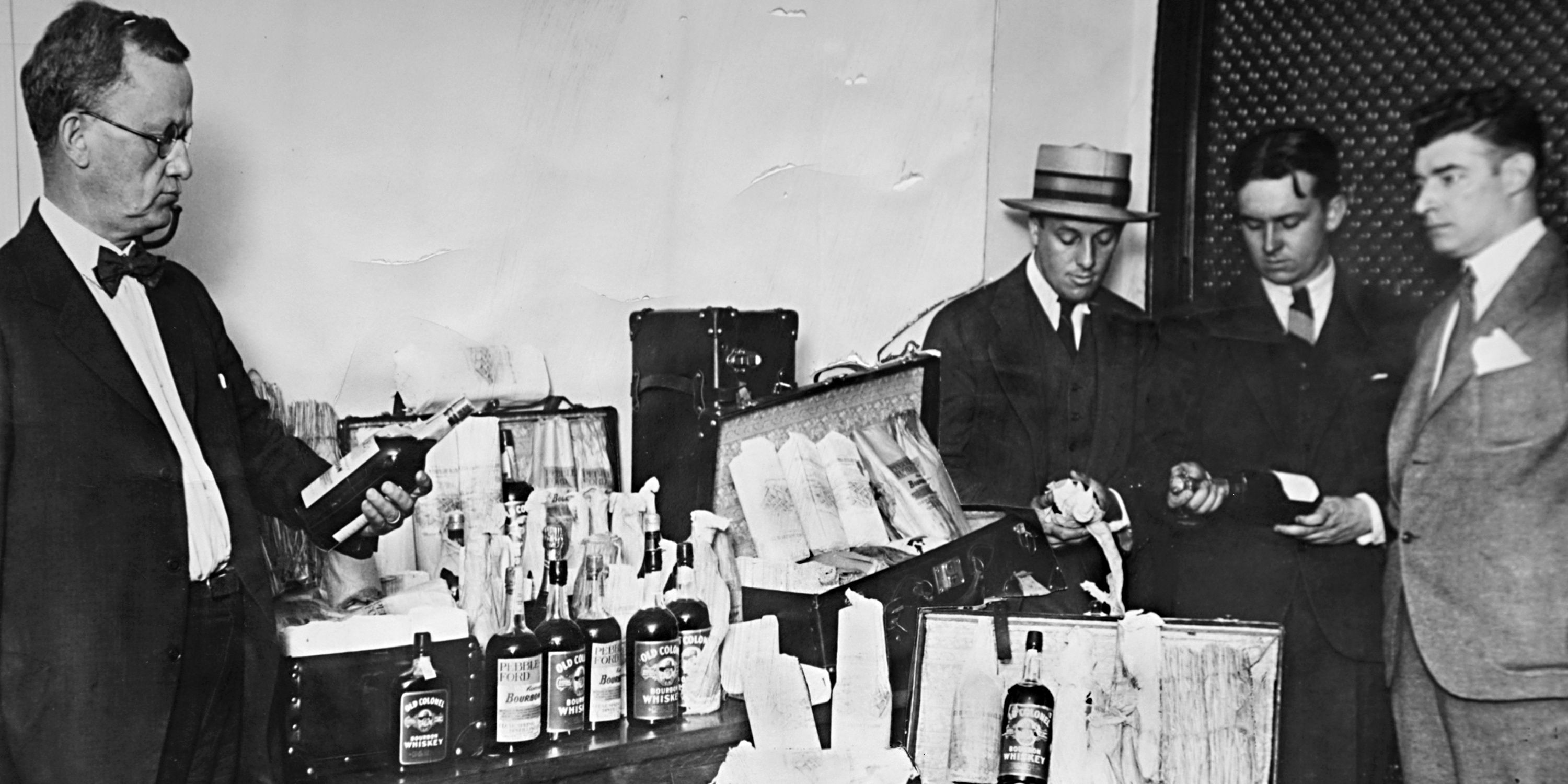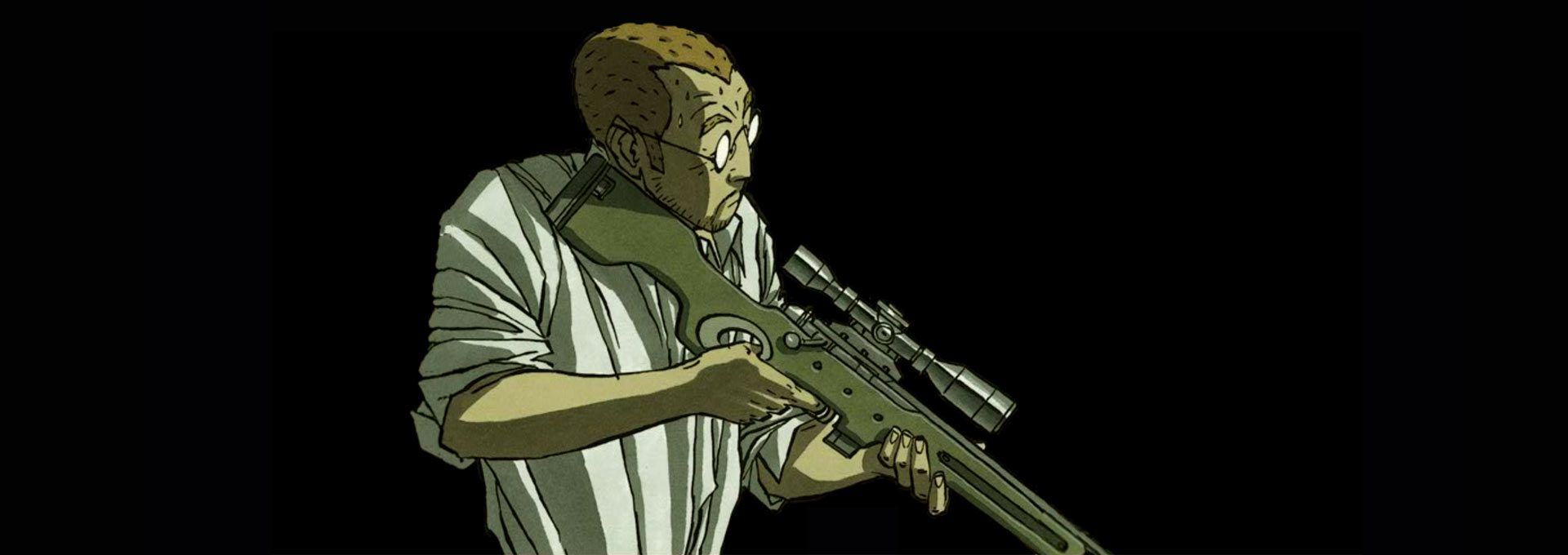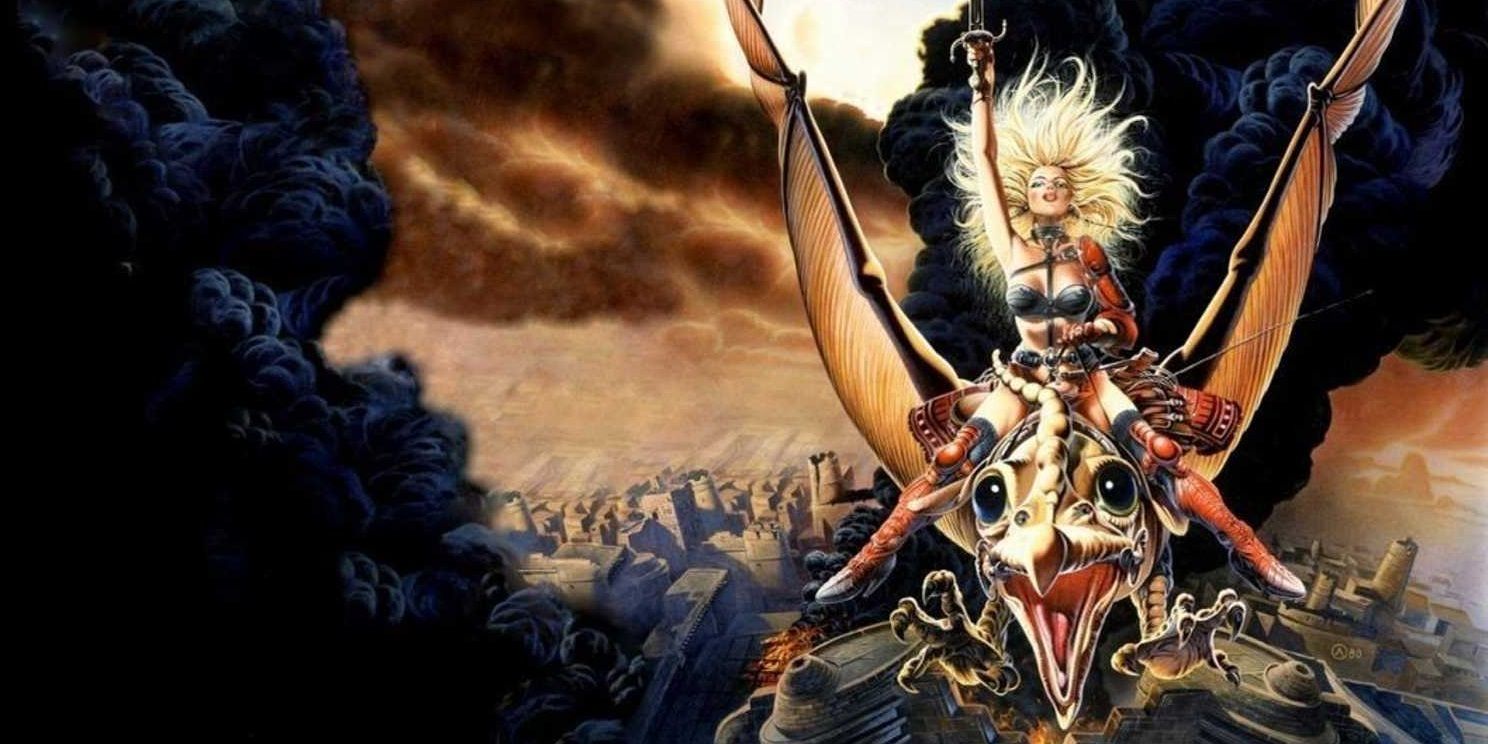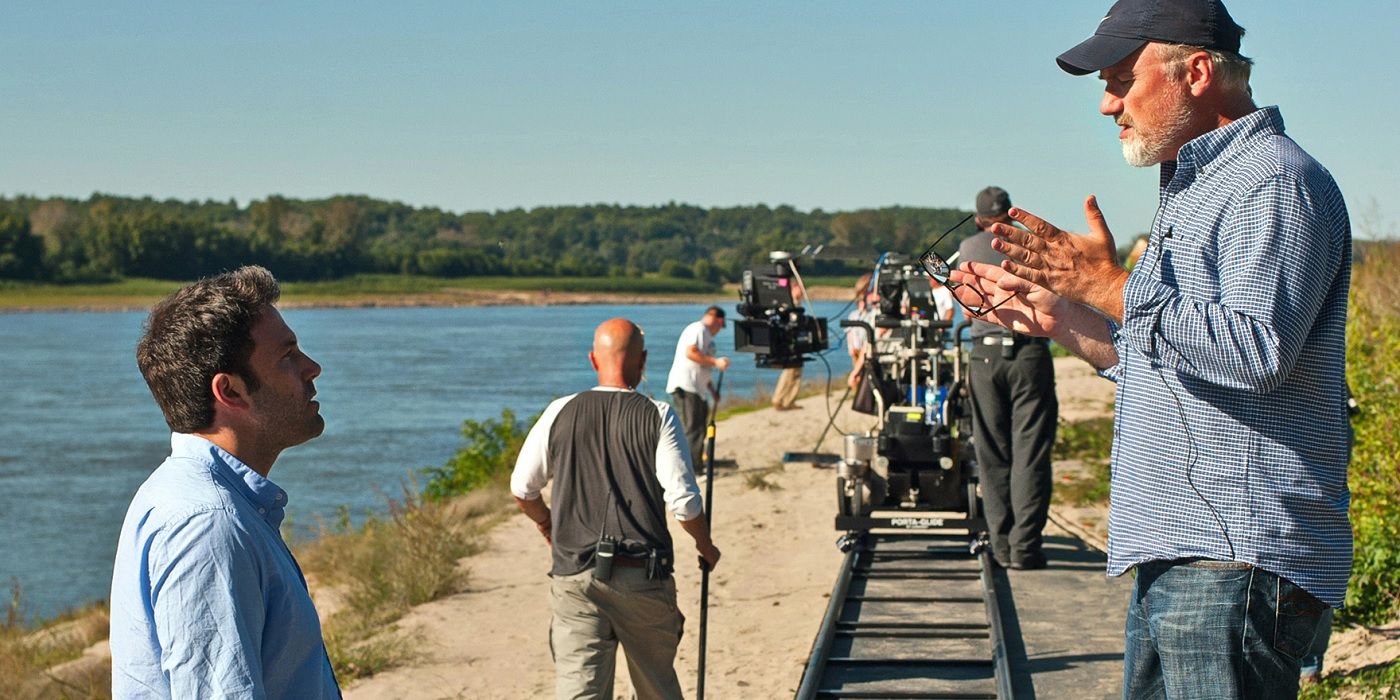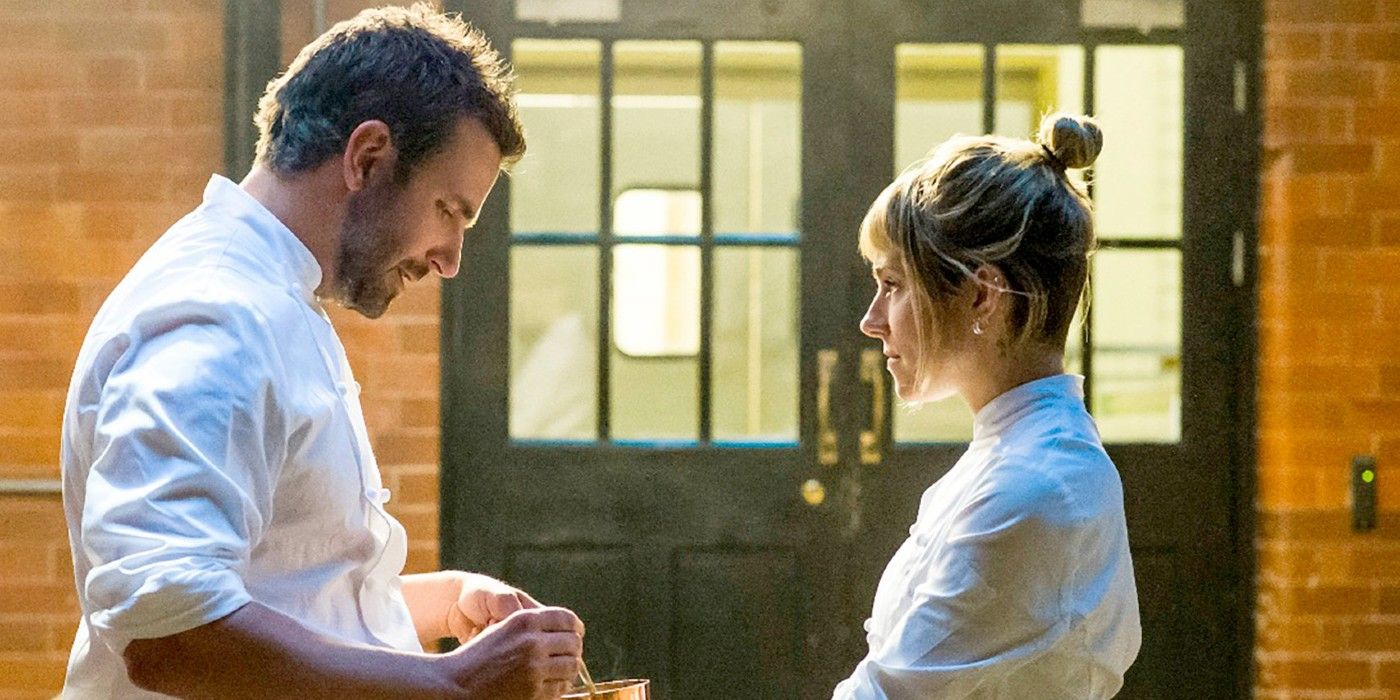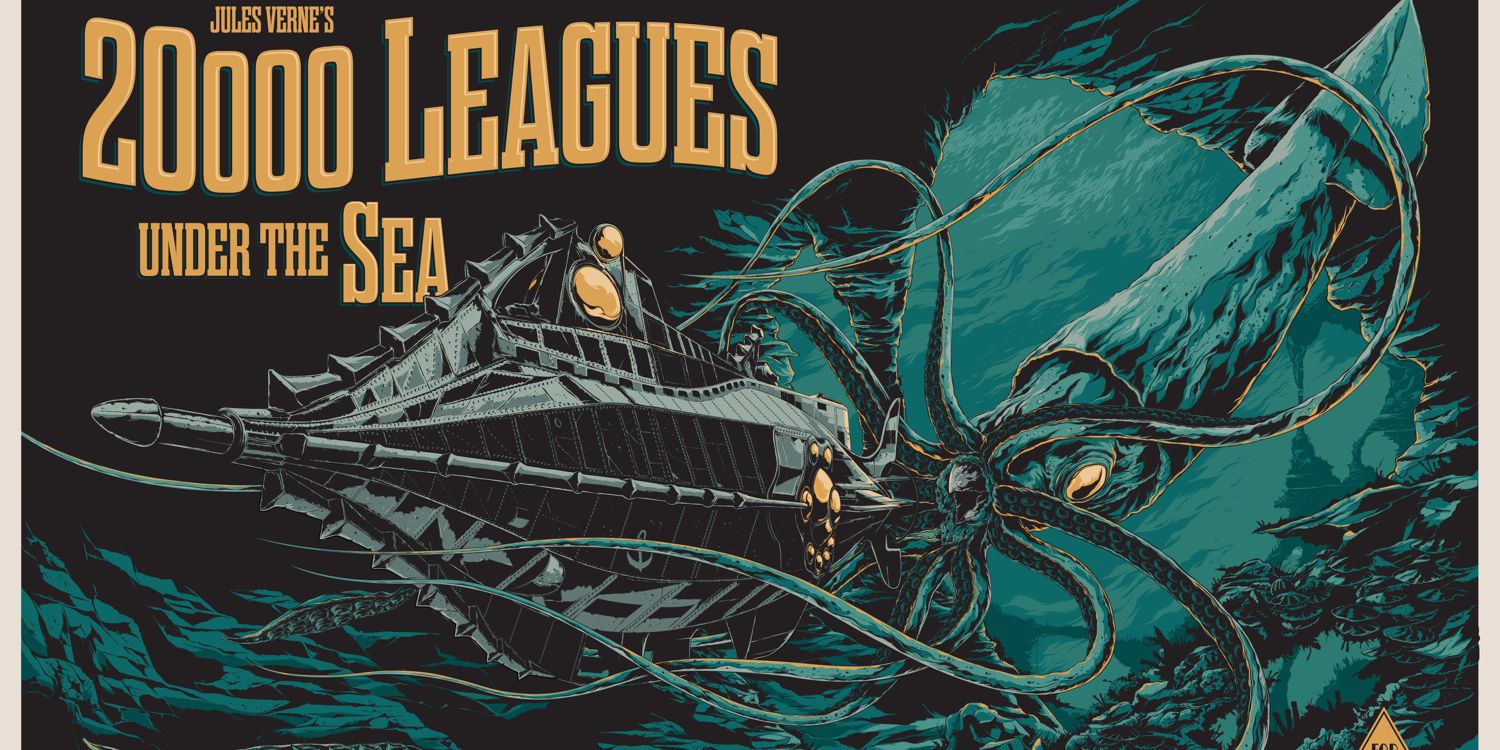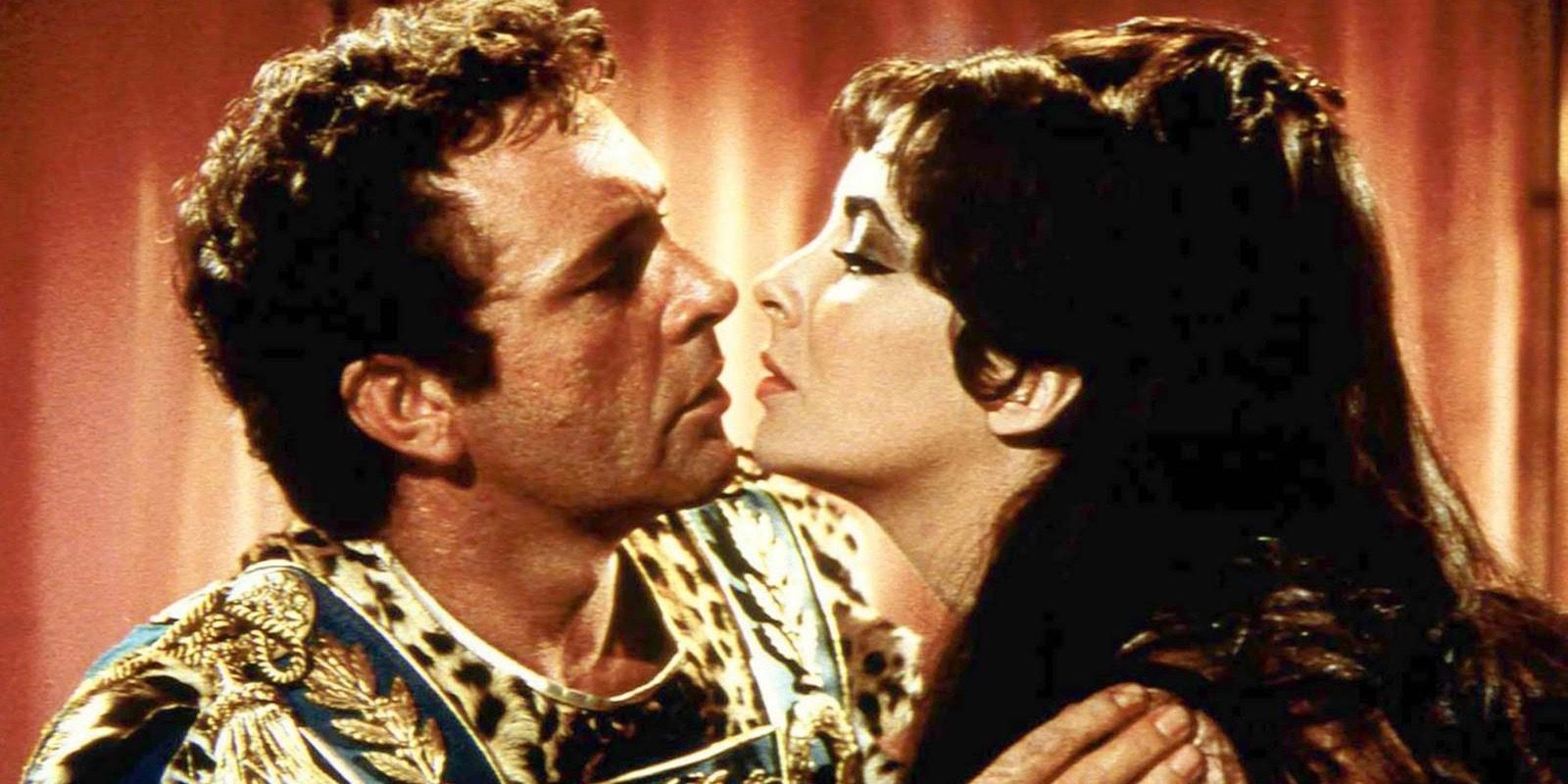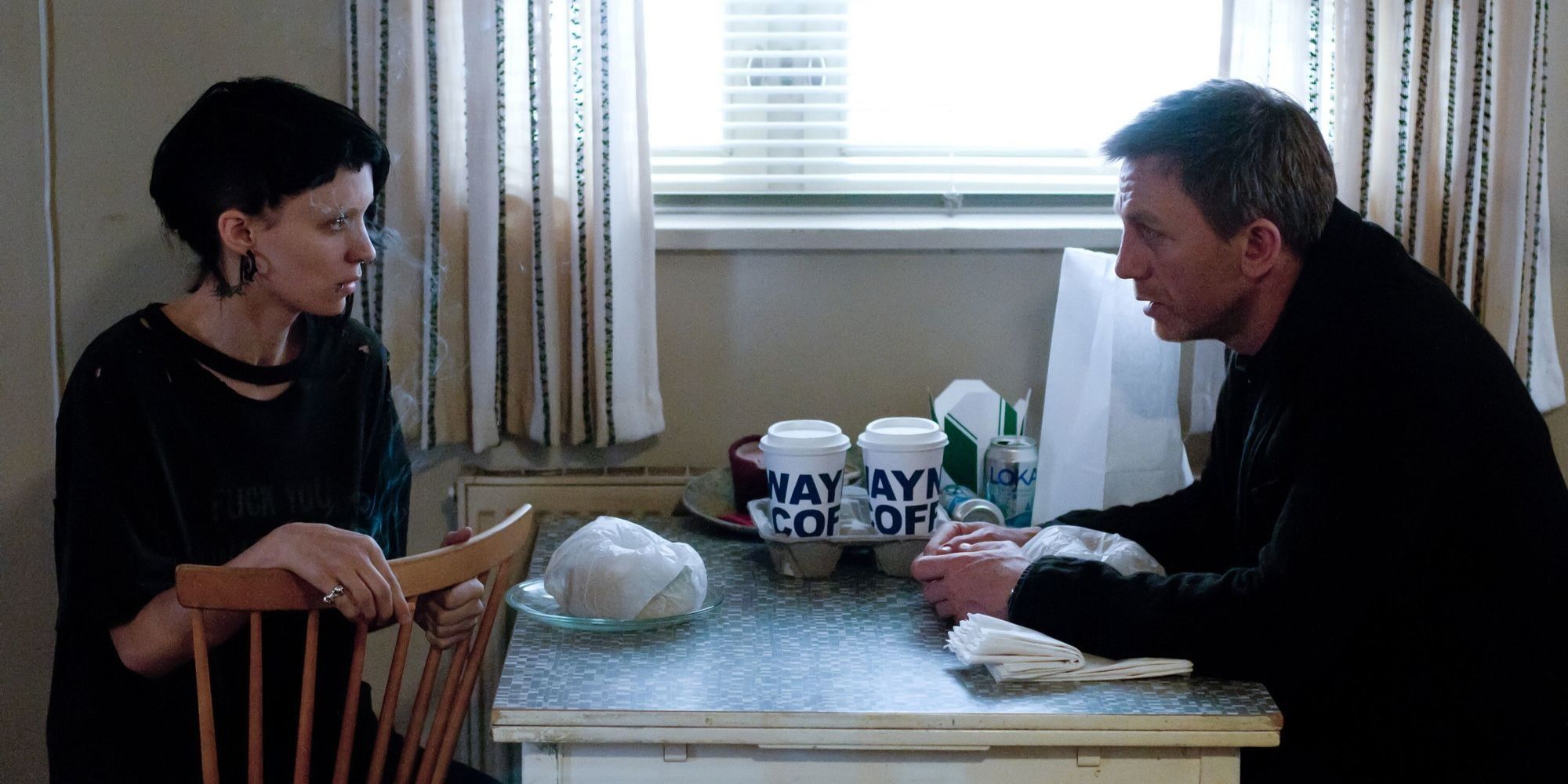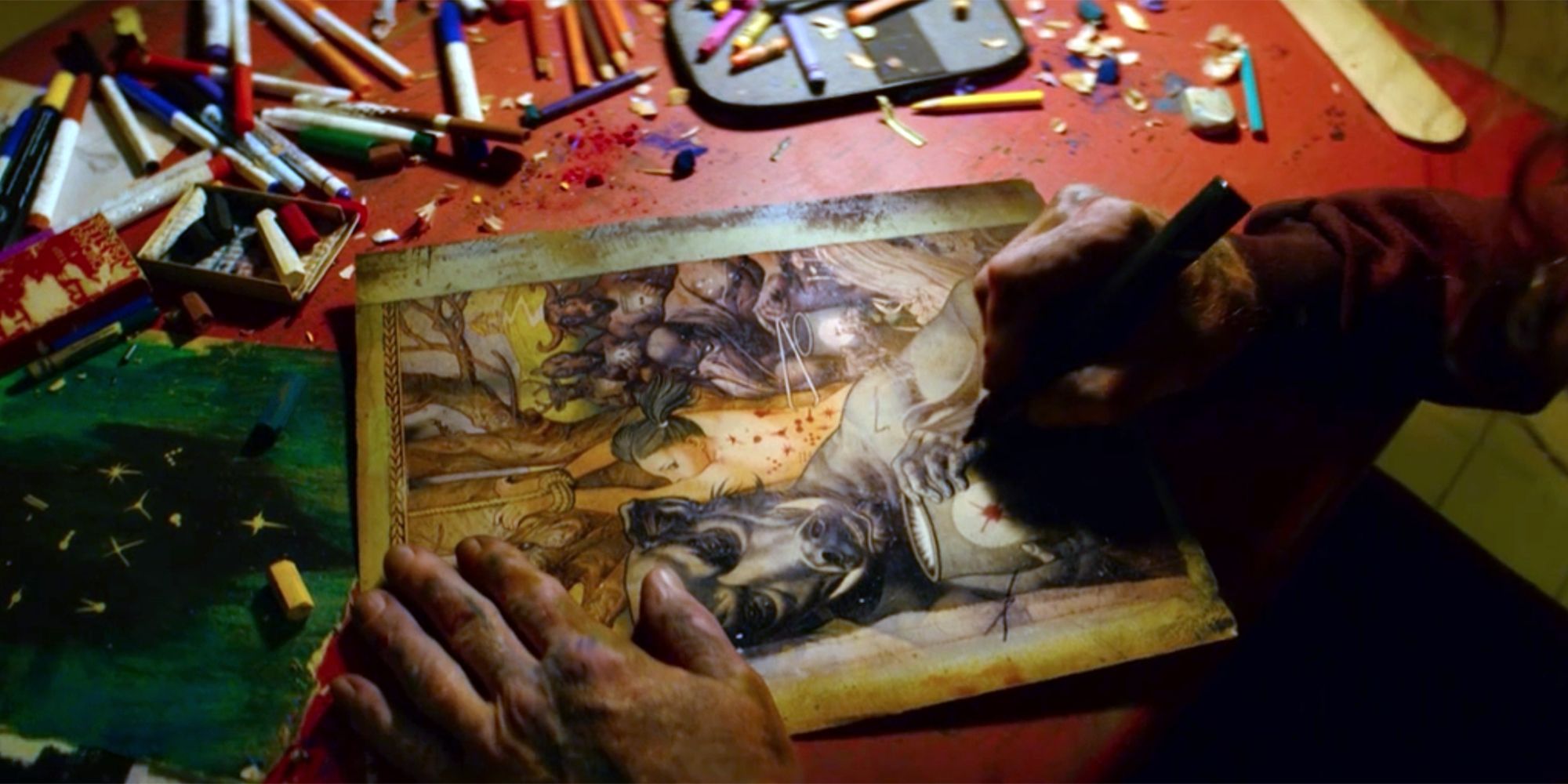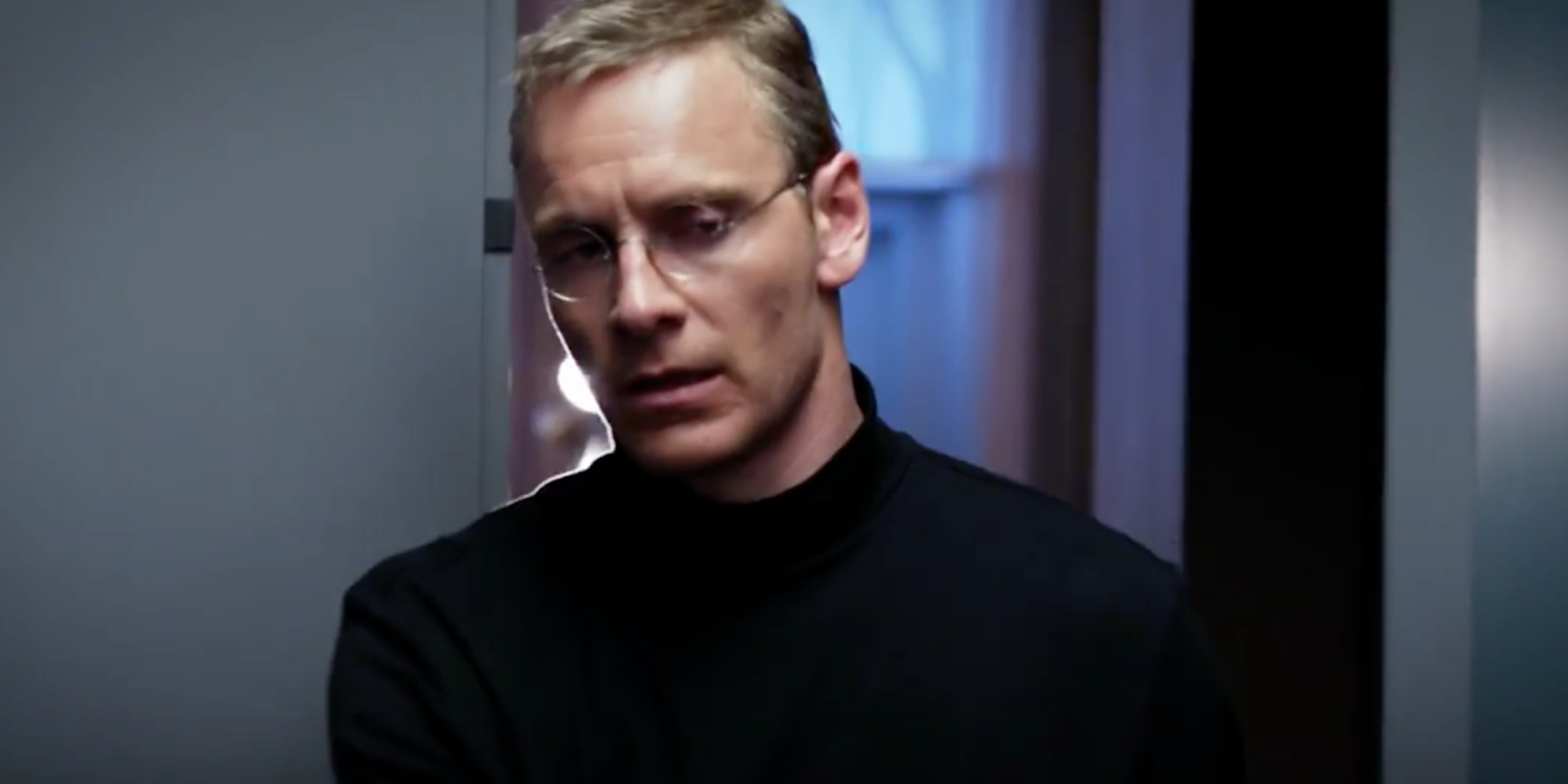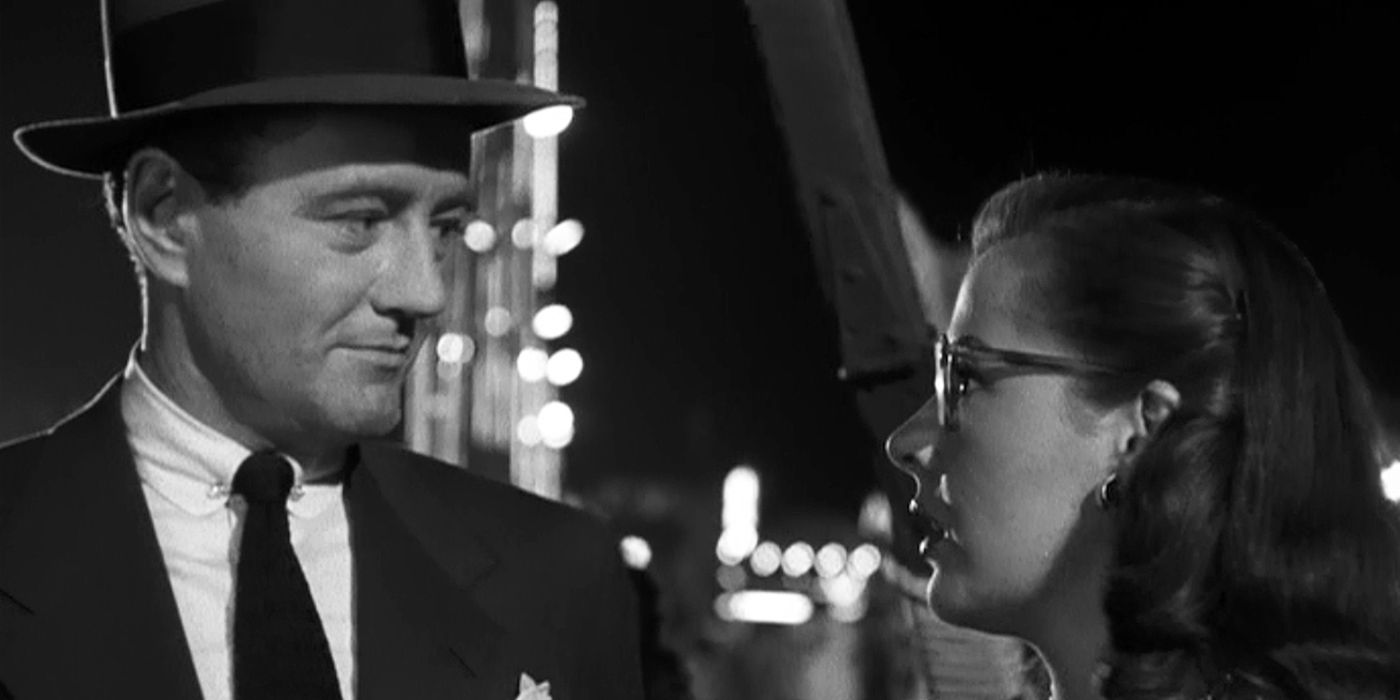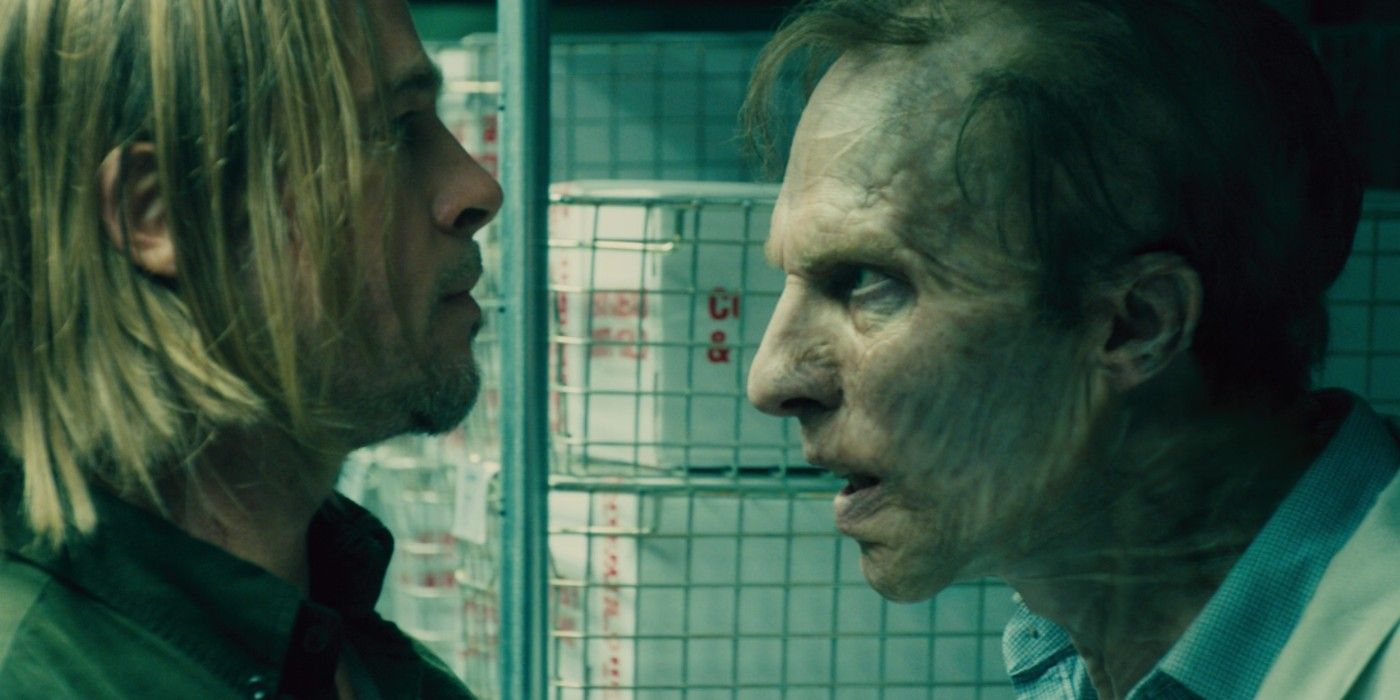While David Fincher's eleventh film, Mank, will be debuting on Netflix on December 4th, there are plenty of other movies by the acclaimed director that have yet to see the light of day. Fincher's first projects were music videos for various pop and rock artists including Madonna, Michael Jackson, and Nine Inch Nails (a group from which frequent soundtrack collaborators Trent Reznor and Atticus Ross would emerge). His first feature was Alien 3, a project notorious for its severe studio interference, but he has since gone on to direct some of the most visceral psychological dramas and thrillers in recent memory.
Mank, which is based on a screenplay written by Fincher's own father, revolves around the life of Herman Jacob Mankiewicz, specifically his experience writing the screenplay for Citizen Kane and his frequent clashes with the director and star, Orson Welles. The movie has been a passion project of Fincher's since the late 90s, and could potentially wind up earning another Oscar nomination for both the director and Netflix as a distribution company. The movie's release comes as a bittersweet note for Fincher fans, as it was recently confirmed that his television series Mindhunter was officially dead at Netflix.
Fincher is often measured by the quality of his released films, an already impressive body of work for a filmmaker who's been working for over 20 years. However, his unreleased and unfinished works reveal just as much about his proclivities as a filmmaker as his completed ones.
The Sky Is Falling
A crime-thriller much in the vein of Natural Born Killers, The Sky is Falling is a spec script written in the 90s about two priests who discover irrefutable proof that God isn't real, causing them to go on a totally uninhibited spree of murder and debauchery. Written by Howard Roth and Eric Warren Singer, both Gore Verbinski and David Fincher were attached to direct at different points. Ultimately though, the project was considered to be too big of a risk because of its controversial subject matter, and the movie never materialized, despite rumblings about the script every couple of years.
Chemical Pink
In the early 2000s, Fincher was temporarily attached to an adaptation of Chemical Pink, a novel by author Katie Arnoldi about the world of competitive female bodybuilding and the blurred line between obsession and perfection. The project would have given Fincher another opportunity to work with Chuck Palahniuk, the writer of Fight Club, because he was the one writing the screenplay. Unfortunately, Fincher left the film relatively early on, turning over the rights to another filmmaker and leaving the project in development limbo.
Squids
A collaboration between David Fincher and fellow directing contemporary David Ayer, Squids was a script written by Ayer that Fincher purchased and showed interest in back in the early 2000s. The story was reportedly a coming-of-age film that took place entirely on a nuclear submarine during the Cold War, an experience that Ayer can relate to as he spent much of his own life on board a U.S. Navy sub. Of course, like many films on this list, the movie was derailed for a number of reasons, and Ayer himself even reportedly thought the script was lacking.
They Fought Alone
David Fincher signed on to direct They Fought Alone for the first time back in August of 2000, and has repeatedly expressed interest in the project ever since then. The movie revolved around the life of Colonel Wendell Fertig, a soldier who led an American-Filipino army into a desperate battle against the Japanese during World War 2. His close friend Brad Pitt was reportedly a personal favorite choice of the director, and even though the film has yet to be driven into production, as of 2009 it was a project that Fincher was still highly interested in.
Seared
Another project that could have potentially involved Brad Pitt is Seared, a cinematic adaptation of Anthony Bourdain's memoir Kitchen Confidential. Bourdain, who was himself a celebrity chef and author known for his travelogues of meals and cultures around the world, used his memoir as an exploration of the highs and lows of the competitive culinary industry, and the intense and often masochistic atmosphere behind famous acclaimed restaurants. Fincher was interested in having both Pitt and Benicio del Toro star, but his experiences on Panic Room left him needing time to recuperate, and the project eventually became a TV comedy starring Bradley Cooper.
Hard Boiled
The first of several almost-made comic book adaptations by the famous director, Hard Boiled was based on the 90's graphic novel of the same name by Frank Miller. Published by Dark Horse, the comic book series was about an amnesiac tax collector in a dystopian future who is ultimately revealed to be a robot assassin, built to hunt down and capture robots who reject their legacy as corporate slaves. Apparently, Nicholas Cage would have starred in the lead role, and Fincher had planned for the project to experiment around with the limits and capabilities of computer-generated effects at the time, but it was much more of a risk than any studio was willing to take at the time.
Rendezvous With Rama
A long-time passion project of Morgan Freeman's (the actor reportedly set to star in the film), Rendezvous With Rama is an adaptation of a book by famed science-fiction writer Arthur C. Clarke, in which a team of human astronauts is sent to make contact with a massive alien spacecraft that has arrived on the outskirts of the solar system. Fincher and Freeman had been working on the development of the film since 2001 (long before a similar concept became the basis for Denis Villeneuve's Arrival), but the frequent recurring problem became finding a script that the duo felt accurately conveyed the atmosphere of the original story. Fincher spoke about the script most recently in 2011, reaffirming his desire to direct it but also talking about the hardships of adapting a story that's been picked clean by so many contemporary science-fiction properties.
Spider-Man
Before Sam Raimi stepped onto the project and made one of the greatest superhero franchises of all-time, David Fincher was being circled to direct a live-action adaptation of Marvel's Spider-Man. Fincher's ideas for the property don't sound like radical departures from the mainstream interpretation of the character, but he did want his first film to feature both Gwen Stacy and the Green Goblin, in a plot that would of course culminate with the former's death. He also wasn't too keen on revisiting Peter Parker's origin story, and would have shown the beginnings of Spider-Man in one clean opening credits sequence, preferring to focus on the story of "the guy who's settled into being a freak." Of course, the studio passed on Fincher's original Spider-Man pitch and Sam Raimi stepped in, although Fincher was once again offered Spider-Man shortly before the production of The Amazing Spider-Man.
Lords of Dogtown
Even though this film ended up getting made with Catherine Hardwicke directing, it still counts as one of Fincher's lost projects, simply because at one point he was set to direct. Based on the near-mythic status of the Z-Boys - a small group of California-based skateboarders who revolutionized the culture with their techniques and aesthetic - Fincher was only attached to produce at first, with Fred Durst of Limp Bizkit fame directing. However, Durst eventually left the project, leaving it in Fincher's hands temporarily. Inevitably, Fincher moved on to other films, and the movie was later directed by Catherine Hardwicke to critical acclaim.
Mission: Impossible III
While the released theatrical version of Mission: Impossible III is considered by many to be a highlight of the franchise due to J.J. Abrams directing and a sinister performance from Phillip Seymour Hoffman, there's an alternate universe somewhere in which it could have been radically different. Fincher's version of the third Mission Impossible was rumored to involve organ trafficking in Africa, and would have been a more violent and cerebral take on the franchise - a far cry from the over-the-top thrills presented by the other movies in the series. Apparently, this direction for the third movie scared investors and the studio, and Fincher would later go on to talk in interviews about the challenges of stepping in to direct the third sequel in a franchise with an already clearly established atmosphere.
The Black Dahlia
Even though Mindhunter was very clearly Fincher's most successful expedition into the television medium, he almost entered the scene for the first time back in the early 2000s, with an adaptation of James Ellroy's historical-fiction novel The Black Dahlia. Based on one of the most graphic and famously unsolvable murders of all-time, Fincher wanted to take the plot of the novel (two beat cops investigating the untimely demise of amateur actress Elizabeth Short) and turn it into a five-episode miniseries, with a budget of $80 million and a lead star in Tom Cruise. Of course, television projects of that magnitude were almost unheard of at the time, so the project eventually became a feature down the road, directed by veteran filmmaker Brian de Palma to relatively lukewarm reviews.
Torso
Another potential adaptation of a work of fiction about notorious murders, David Fincher revealed back in 2006 that he was working on bringing Torso to life, a graphic novel written by Brian Michael Bendis about Elliot Ness' ill-fated search for the identity of the notorious Cleveland Torso Murderer, who operated in the mid-1930s. Before Paramount Pictures lost the rights to the comic in 2009, Fincher had reportedly been looking at a huge ensemble cast featuring names such as Casey Affleck, Rachel McAdams, and Gary Oldman among others. Unlike his other crime-thrillers like Zodiac and Se7en, Fincher was less interested in the murderer himself and more in the irreparable damage that Elliot Ness' investigative methods left on his career, as his desperate search for the Torso Murderer led him to resort to oppressive crimefighting techniques. While the project fell through due to rights and licensing issues, rumors still persist about Torso's script to this day.
The Killer
Based on a French comic book about an assassin slowly losing his grip on reality, David Fincher was attached to direct this adaptation shortly after his work on Zodiac but before he'd made The Curious Case of Benjamin Button. Even with Alessandro Camon writing the script and Brad Pitt's production company helping on the development end, the project eventually fell apart, more than likely because the working relationship between Fincher and Paramount Pictures turned sour after the release of Benjamin Button.
Heavy Metal
Without a doubt one of the more ambitious projects on this list, Heavy Metal has a long-running reputation in popular culture; first, as an adult science-fiction/fantasy comic book magazine that rose in popularity during the late 70s, and then as a cult-classic 1981 animated anthology film based on several stories from the magazine. In the mid-2000s, David Fincher began work on a new adaptation of the source material: an R-rated anthology film with animated segments directed by some of the biggest names working in Hollywood at the time, including Fincher himself, Gore Verbinski, Guillermo del Toro, and Zack Snyder. The project jumped studios from Paramount to Columbia, but even then not many people were willing to take the risk on an adult-animation project at the time.
The Automatic Detective
In 2008, Fincher reached out to Blur Animation Studios to help him bring to life Automatic Detective, A. Lee Martinez's underrated science-fiction novel. Equal parts sci-fi and film noir, the story follows a robotic cab driver named Mack, created to destroy humanity yet disillusioned with his original purpose, and takes him on a mystery through an anachronistic 1950's-inspired vision of the future. Like many of the projects on this list, Automatic Detective eventually fell by the wayside as more films took on Fincher's priority, and it hasn't really been heard about since.
Chef
Even though both of them were never made, Chef seems almost like a spiritual successor to Fincher's earlier efforts to direct Seared. Like the latter, Chef would have also taken place in the cutthroat and competitive world of the culinary arts, but it wasn't based on a pre-existing work like Bourdain's memoir, and would have been much more dryly comedic, as Fincher himself described it as a "celibate sex comedy." Keanu Reeves was set to star in the film, and even though it seemed to be like Fincher's perfect love letter to the art of food preparation, the director eventually dropped out of the project, which later became the 2015 release Burnt, once again starring none other than Bradley Cooper.
20,000 Leagues Under The Sea
One of the most notorious unmade projects of all-time, Fincher's vision for Jules Verne's sci-fi epic brought him to creative blows with none other than the corporate empire of Disney. Fincher was particularly thrilled about a script written by Scott Z. Burns, the writer of contagion, that would have set Captain Nemo's voyage during the Civil War, telling a story about the intersection of humanity and technological advancement. Disney was prepared to give Fincher a $200 million budget, but ultimately the studio and the filmmaker couldn't settle down and agree upon actors. Fincher was adamant about casting Channing Tatum, but Disney was pushing for him to cast Chris Hemsworth (likely because of the latter's soon-to-arrive popularity after the release of Thor in 2011). In a stunning blow to the filmmaking world at large, Fincher ultimately left the project within the year, forever leaving the movie in limbo.
Cleopatra
David Fincher is no stranger to biopics, with movies like Zodiac and The Social Network telling real-life stories that reflect the changing sociopolitical climate of those eras, but none such on the scale as his unmade Cleopatra epic. In 2011, Fincher began circling the director's chair for a retelling of the story of Cleopatra, this time eschewing the sword-and-sandal elements of the 1963 film, and instead leaning on political intrigue and human melodrama. With frequent Academy Award-nominees Angelina Jolie set to star and Eric Roth writing the screenplay, it seems as if Fincher's Cleopatra was destined for widespread greatness, but unfortunately, the director abandoned the project in order to direct Gone Girl instead. Recently, it's been confirmed that Patty Jenkins is now looking to bring the fabled queen back to life on-screen, with Gal Gadot herself playing Cleopatra.
The Girl Who Played With Fire
Stieg Larsson's acclaimed Millennium trilogy, a series of originally three crime-thrillers, could have been the basis for the first recurring franchise to come from David Fincher. The first book, The Girl With The Dragon Tattoo, was adapted by Fincher back in 2011 for American audiences and was met with praise for the dark, moody atmosphere and the impeccable performance of Rooney Mara as Lisbeth Salander. Both Sony Pictures and Fincher expressed interest in adapting the whole trilogy, with Fincher wanting to shoot both sequels "back to back" with returning cast members Mara and Daniel Craig. However, when a fourth book in the series was written by a new author back in 2015, Sony Pictures decided to reboot the franchise with more of a Bond-Esque action-heavy approach in mind, and brought on Fede Álvarez to direct 2018's The Girl in the Spider's Web.
Utopia
Around 2013, Fincher became interested in spear-heading an American remake of Utopia, a British television series about a group of comic book fans who start to uncover evidence that their favorite comic book, The Utopia Experiments, has accurately predicted several major world events. In 2014, talks about the series started to heat up, and Fincher pitched the project to HBO as a second collaboration between him and Gone Girl writer Gillian Flynn. Fincher and Flynn would have had total creative control over the project, with the two of them directing and writing every episode respectively, but the project was abruptly canceled in 2015 as the result of budget disagreements between HBO and the show's creative team. However, in a recent and shocking turn of events, an American adaptation of the series was released by Amazon on September 25th, 2020.
Jobs
Before Steve Jobs overwhelmed the festival circuit in 2015, David Fincher was attached to direct the project, based on the script written by Aaron Sorkin. As a result of the 2014 Sony Pictures hack, some of the behind-the-scenes discourse about Fincher's involvement with the film was released, revealing that Fincher was ecstatic to work on the project and saw the potential for it to be as acclaimed as 1974's Lenny Bruce biopic, Lenny. However, the leaks also revealed that Fincher and Sony Pictures struggled to see eye to eye, and despite Aaron Sorkin fighting to keep Fincher on the project, Sony eventually turned down many of Fincher's contractual requests.
Strangers on a Train
Ever a fan of the work of Alfred Hitchcock, back in 2015, Fincher and Gone Girl writer Gillian Flynn were once again intended to team up on a remake of Alfred Hitchcock's classic Strangers on a Train. The film would have been set in the world of contemporary Hollywood, and would have starred Ben Affleck as a desperate actor searching for awards acclaim. Despite the meta-textual exploration of Hollywood self-importance being right up Fincher's alley, the project eventually fell out of the spotlight simply because of how busy all three of the involved names were at the time; with Fincher and Flynn working on Utopia and Ben Affleck gearing up for his turn as the Batman.
World War z 2
The most recent unmade project in the director's catalog is also one of the weirdest. After the release of the first World War Z in 2013, rumors began to circulate suggesting that Brad Pitt might be pushing his friend David Fincher to direct the sequel. Those rumors were eventually confirmed years later, when Fincher officially signed on to the project in June of 2017, expecting to start shooting in June of 2019. The promise of the grounded director turning around and helming the sequel to a zombie blockbuster left a lot of film fans intrigued and enraptured, but to the dismay of everyone looking forward to the film, Paramount canceled David Fincher's World War Z sequel in February 2019. The two major reasons for the cancellation were the movie's quickly inflating budget, and also the fact that China had just recently imposed a release ban on movies featuring zombies, limiting a major market of income. Like many of the movies on this list, there's hope that some of David Fincher's plans for World War Z 2 make it into another film down the road, hopefully along with more of these unmade gems that would have no doubt been unique and impeccably made projects in another life.

